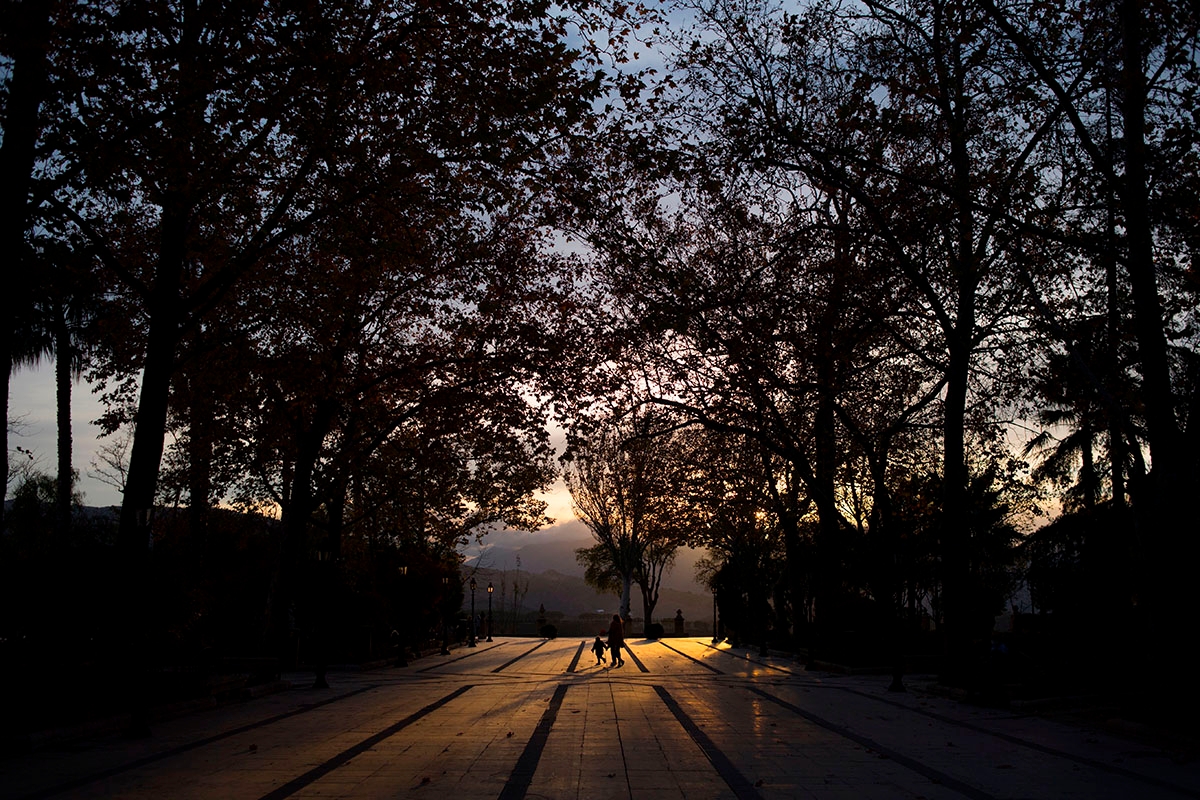The month of Elul is here! It’s a time leading up to Rosh Hashanah when we have the opportunity to tune in to our spiritual concerns, reflect on our dreams and challenges over the year that’s gone by, and consider areas for change and growth in the coming new year.
I didn’t grow up with an awareness of a month of preparation leading up to the High Holy Day season. But in discovering Elul as an adult, I embrace this time for spiritual reflection, and I’ve noticed how it’s deepened my experience of the holiday season. The personal work of Elul feels like the rehearsal period for a play, or the warm-up exercises before a sporting event — it’s the energy and dedication put in before the big day(s) that deepens the ritual experience of Rosh Hashanah worship.
This year, Elul has arrived as we parents are facing extraordinary demands and anxiety in our back-to-school preparations. This year isn’t only about finding the right school supplies and new clothes — it’s also about making sure that our children will be protected as school districts and local governments fight about mask mandates. It’s about helping children who have spent a year in virtual classrooms feel equipped and confident as they re-enter in-person learning. It’s about managing our own anxiety and emotions as we keep an eye on the headlines about the rapidly spreading delta variant.
Given how full our metaphorical plates are, is there a way to make time for spiritual reflection in this particular moment, during this particularly challenging month? Absolutely! I believe that spiritual practice can be infused into our busy and sometimes uncomfortable lives — it doesn’t require us to escape to a retreat center, or ignore the realities that we face on a regular day. My experience is that taking a little bit of time and space for spiritual practice can actually give us renewed strength, energy and self-compassion as we navigate this new year, which, like the one before it, we can probably already describe as “unprecedented.”
Here are five ways that we busy parents can make some time and space for Elul reflection this year.
1. Make a special playlist.
Music is one of the most immediate ways that I access my deepest feelings and spiritual connections. I make playlists for occasions like holidays and birthdays, and I listen to them while I’m doing during chores like walking my dog, folding laundry or chopping vegetables for dinner — essentially, times when I can tap into the music’s energy and message. I created a Spotify playlist for Elul with songs that really stir my soul and help me think about the big questions. Take a listen to mine if it inspires you, or create your own Elul playlist!
2. Reach out to loved ones.
Elul is a month to consider our connections to our spiritual lives as well as to friends, family and community. During this past pandemic year, so many social connections were interrupted, and many, many people experienced isolation on a level they had never experienced before. If you have a friend you’ve lost touch with and have been meaning to check in on, this time is a great moment to send a text or email just asking how they are and letting them know you’ve been thinking of them.
3. Embrace the practice of free writing.
Writing is one of the practices that I use to connect to what I call my inner wisdom — the voice that I don’t always hear when I’m busy with the demands of parenting and work. I take 10 minutes several times a week to do some free writing, during which I sit down with my journal or a blank Google Doc and just write about whatever comes to mind. I always feel much better and more connected after those sessions. The easiest way to do this is to schedule a few writing times into your calendar over the next few weeks. Then, simply open a blank document and use prompts like: This year I hope to… One thing I’ve learned this year is… or My prayer for the world is…
4. Reassess your schedule.
Right now I’m feeling a bit overwhelmed about the return of many in-person activities, for myself and my family. I am taking this month to think hard about how many extracurricular activities will feel manageable and I am practicing saying no to things that feel too much (or not safe). One thing I’ve learned about myself over the pandemic is that I thrive with more downtime. As such, I am entering this year with the intention and awareness that becoming “too busy” — even with good things — takes me away from feeling my most grounded and healthiest, and it also creates unnecessary pressure in my family. Use Elul to consider what you can take on this year, and what you can say no — or “not yet” — to.
5. Include your family!
If your kids aren’t back to school yet, they are probably busy savoring the end of summer. In other words, Rosh Hashanah probably feels very far away. But you can bring your children into your Elul practice in fun, gentle ways. If you’re out enjoying nature, for example, take a moment to mention Rosh Hashanah, the world’s birthday, and invite them to share what they’re most grateful for in the natural world. Bring out your favorite Rosh Hashanah books and start reading them now (I also have a new set of plays that would be fun to read as a family). This social story can be especially helpful for children with intellectual disabilities to know what to expect on the holiday. If your kids enjoy art, start making some homemade cards to send to family and friends.
I hope that this month brings you and your family many opportunities for connection and growth!








